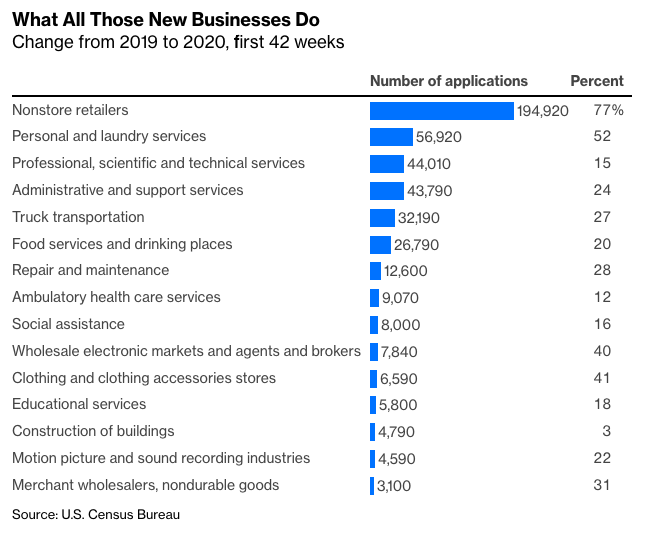Still, the fact that there’s so much business-formation happening is a sign the aftermath of this recession might not be the long, painful slog the early 2010s were. “One of the reasons we took so long to recover from the Great Recession is startups got clobbered and didn’t come back,” Haltiwanger says.
If it takes longer than hoped to emerge from the pandemic, and/or the economy backslides into a double-dip recession, then startups could of course get clobbered again. “Creative destruction” is often cited as a reason why governments shouldn’t intervene in the economy and the business cycle should be allowed to take its course. But in this case intervention seems to have helped create the conditions that enabled an entrepreneurship boom. Let’s hope it isn’t allowed to fizzle.
Justin Fox is a Bloomberg Opinion columnist covering business. He was the editorial director of Harvard Business Review and wrote for Time, Fortune and American Banker. He is the author of The Myth of the Rational Market.
Interestingly, restaurants and bars (“food services and drinking places”) are being started in greater numbers than usual, even as they close at a faster pace than usual. Same with clothing stores. “The question is what parts of in-person activity will come back,” says Haltiwanger. “It’s hard to imagine that restaurants won’t be back, but bricks-and-mortar retail for clothes? I’m not saying that there isn’t going to be any of that, but less.”
Those ‘Gales Of Creative Destruction’ Are For Real
October 23, 2020
« Previous Article
| Next Article »
Login in order to post a comment








